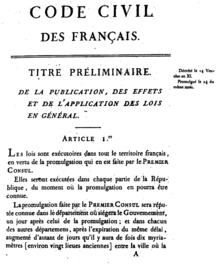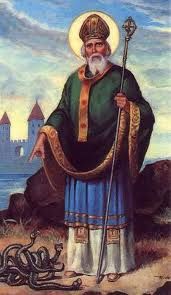This is your morning Open Thread. Pour your favorite beverage and review the past and comment on the future.
Find the past “On This Day in History” here.
March 23 is the 82nd day of the year (83rd in leap years) in the Gregorian calendar. There are 283 days remaining until the end of the year.
On this day in 1775, Patrick Henry voices American opposition to British policy
During a speech before the second Virginia Convention, Patrick Henry responds to the increasingly oppressive British rule over the American colonies by declaring, “I know not what course others may take, but as for me, give me liberty or give me death!” Following the signing of the American Declaration of Independence on July 4, 1776, Patrick Henry was appointed governor of Virginia by the Continental Congress.
Patrick Henry (May 29, 1736 – June 6, 1799) was an orator and politician who led the movement for independence in Virginia in the 1770s. A Founding Father, he served as the first and sixth post-colonial Governor of Virginia from 1776 to 1779 and subsequently, from 1784 to 1786. Henry led the opposition to the Stamp Act of 1765 and is well remembered for his “Give me Liberty, or give me Death!” speech. Along with Samuel Adams and Thomas Paine, he is remembered as one of the most influential exponents of Republicanism, promoters of the American Revolution and Independence, especially in his denunciations of corruption in government officials and his defense of historic rights. After the Revolution, Henry was a leader of the anti-federalists in Virginia who opposed the United States Constitution, fearing that it endangered the rights of the States, as well as the freedoms of individuals.
Responding to pleas from Massachusetts that the colonies create committees of correspondence to coordinate their reaction to the British, Henry took the lead in Virginia. In March 1773, along with Thomas Jefferson and Richard Henry Lee, Henry led the Virginia House of Burgesses to adopt resolutions providing for a standing committee of correspondents. Each colony set up such committees, and they led to the formation of the First Continental Congress in 1774, to which Henry was elected.
Patrick Henry is best known for the speech he made in the House of Burgesses on March 23, 1775, in Saint John’s Church in Richmond, Virginia. The House was undecided on whether to mobilize for military action against the encroaching British military force, and Henry argued in favor of mobilization. Forty-two years later, Henry’s first biographer, William Wirt, working from oral testimony, attempted to reconstruct what Henry said. According to Wirt, Henry ended his speech with words that have since become immortalized:
“Is life so dear, or peace so sweet, as to be purchased at the price of chains and slavery? Forbid it, Almighty God! I know not what course others may take; but as for me, Give me Liberty, or give me Death!”
The crowd, by Wirt’s account, jumped up and shouted “To Arms! To Arms!”. For 160 years Wirt’s account was taken at face value, but in the 1970s historians began to question the authenticity of Wirt’s reconstruction.[8] Historians today observe that Henry was known to have used fear of Indian and slave revolts in promoting military action against the British, and that according to the only written first-hand account of the speech, Henry used some graphic name-calling that failed to appear in Wirt’s heroic rendition.
In August 1775, Henry became colonel of the 1st Virginia Regiment. At the outset of the Revolutionary War, Henry led militia against Royal Governor Lord Dunmore in defense of some disputed gunpowder, an event known as the Gunpowder Incident. During the war he served as the first post-colonial Governor of Virginia and presided over several expeditions against the Cherokee Indians, who were allied with the British.
Henry lived during part of the War at his 10,000-acre Leatherwood Plantation in Henry County, Virginia, where he, his first cousin Ann Winston Carr and her husband Col. George Waller had settled. During the five years Henry lived at Leatherwood, from 1779 to 1784, he owned 75 slaves, and grew tobacco. During this time, he kept in close touch with his friend the explorer Joseph Martin, whom Henry had appointed agent to the Cherokee nation, and with whom Henry sometimes invested in real estate, and for whom the county seat of Henry County was later named.
In early November 1775 Henry and James Madison were elected founding trustees of Hampden-Sydney College, which opened for classes on November 10. He remained a trustee until his death in 1799. Henry was instrumental in achieving passage of the College’s Charter of 1783, an action delayed because of the war. He is probably the author of the Oath of Loyalty to the new Republic included in that charter. Seven of his sons attended the new college.

 On this day in 1784, the
On this day in 1784, the  On this day in 1804,
On this day in 1804,  On this day in 1854,
On this day in 1854, 
 On this day in 1941, the 99th Pursuit Squadron also known as the
On this day in 1941, the 99th Pursuit Squadron also known as the  On this day in 1766, the
On this day in 1766, the  On this day in 461,
On this day in 461,  On this day in 1802,
On this day in 1802,  On this day in 1965, President Lyndon B. Johnson addressed a joint session of Congress
On this day in 1965, President Lyndon B. Johnson addressed a joint session of Congress  The
The
Recent Comments